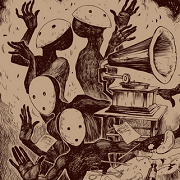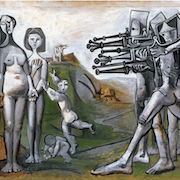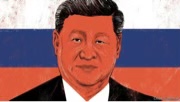(Thread IKs:
fart simpson)
|
Mia Wasikowska posted:so if the success of Socialism with Chinese characteristics depends on having the correct paramount leader, what happens when they eventually have a lovely leader? how could china survive a gorbachev for example good question nobody in this thread is close to being able to answer i hope the cpc's strong enough to do so (or at least strong enough to keep any would-be gorbachevs away from the tanks) but gently caress knows
|
|
|
|

|
| # ? May 25, 2024 14:23 |
|
the bitcoin of weed posted:the fact that the western left is still so ultrafixated on marx after 150 years and after so many of his predictions were proven completely naive and wrong by actual historical events is pretty sad Tbf it's difficult to build an academic tradition expanding on Marx when trying to do so is a career ender. And the Russians and Chinese weren't and aren't known for the comprehensive English language translations of their work, unfortunately.
|
|
|
|
Atrocious Joe posted:I am somewhat surprised seeing these protests embraced and celebrated by people in the US who I know agitated to keep COVID protections in place and even counter-protested "anti-lockdown" events. I guess I underestimated how mainstream anti-China sentiment is in the US. Well that's because Joe Biden solved COVID and everything is fixed now. Anyone still wearing a mask or acting like COVID is a thing is spitting on his legacy and that includes foreigners.
|
|
|
|
Orange Devil posted:Tbf it's difficult to build an academic tradition expanding on Marx when trying to do so is a career ender. And the Russians and Chinese weren't and aren't known for the comprehensive English language translations of their work, unfortunately. english is a filth language, a mind virus
|
|
|
|
Orange Devil posted:Tbf it's difficult to build an academic tradition expanding on Marx when trying to do so is a career ender. And the Russians and Chinese weren't and aren't known for the comprehensive English language translations of their work, unfortunately.
|
|
|
|
strange feelings re Daisy posted:https://twitter.com/BenjaminNorton/status/1597298066381733889?s=20&t= 
|
|
|
|
Naomi Klein - Prof. of Media Literacy
|
|
|
|
atelier morgan posted:good question nobody in this thread is close to being able to answer the anti-corruption campaign and internal reforms the cpc has been undertaking in recent years appear to be at least in part an effort to improve governance and ensure the party has the capacity to self-sustain for future generations. corruption was very obviously a huge problem in the jiang and hu eras and clearing out the dross has not only increased public buy-in but firmed up the backbone of the structure of the government itself
|
|
|
|
That said, the divide between Orthodox Marxists and Communists goes back to 1917. You just have a fundamental divide between the ideas of a 19th century economist (who was right about a lot) and actually how to run a government to address the problems he layed out. Xi and China isn't any different.
|
|
|
|
Mia Wasikowska posted:so if the success of Socialism with Chinese characteristics depends on having the correct paramount leader, what happens when they eventually have a lovely leader? how could china survive a gorbachev for example I don't know the details so I cant say for certain, but I'm assuming the process wasn't "luckily Xi stumbled into the position and saved China" but rather that this is the result of massive trends and forces within the party to make this happen.
|
|
|
|
Actual Existing Socialism is going to always be vulnerable while Capitalist hegemony exists, unfortunately. No one would have predicted Gorbachev's surrender in 1970, and yet it happened. Perhaps the experience of seeing what happened to the Warsaw Pact nations after liberalization has inoculated the CPC somewhat, but it's basically always been a fatal flaw for lefties that they take liberals at their word. Just look earlier in this very thread where someone talked about the average Chinese person being far too trusting of Americans.
|
|
|
|
Just posting itt to say I'm very glad d&d is so stupid they'll actually suggest people read this one instead of their own. The last few pages here have been really enlightening vs whatever the gently caress is going on over there. It's like seeing society through a class lense for the first time again.
|
|
|
|
lol @ the Naomi Klein meltdown
|
|
|
|
Atrocious Joe posted:I am somewhat surprised seeing these protests embraced and celebrated by people in the US who I know agitated to keep COVID protections in place and even counter-protested "anti-lockdown" events. I guess I underestimated how mainstream anti-China sentiment is in the US. why its almost as if the culture wars encourage people to support a side not because they have a better more coherent argument but because theyre arbitrarily coded as correct and the leaders in such a political dynamic feel no shame about completely reversing their policies overnight because they know the base will support them no matter what
|
|
|
|
https://twitter.com/bidetmarxman/status/1485766660166324225 Wait there are socialists in China still? quote:"Communism is for us not a state of affairs which is to be established, an ideal to which reality [will] have to adjust itself. We call communism the real movement which abolishes the present state of things. The conditions of this movement result from the premises now in existence." -Karl Marx
|
|
|
|
Good writeup but everytime the Sino-Soviet split comes up it seems everyone just goes "it's incredibly complicated" and leaves it there. Nobody able to condense that poo poo down into an effort post?
|
|
|
|
Orange Devil posted:Good writeup but everytime the Sino-Soviet split comes up it seems everyone just goes "it's incredibly complicated" and leaves it there. Nobody able to condense that poo poo down into an effort post? After Stalin died, Khrushchev denounced him and the idea of a Cult of Personality. The CPC didn't like this, because they thought it would blow back on Mao, intentionally or otherwise. As well, Khrushchev devised the idea of, and began promoting, peaceful co-existence with the capitalist West, which the CPC also thought was dumb and wrong. There's been a couple of deeper analyses of the topic that's come up before in this thread, but that's the root of it, combined with some resentment over the USSR feeling like they lead the communist bloc and looked on everyone else as little brothers.
|
|
|
|
gradenko_2000 posted:https://twitter.com/bidetmarxman/status/1485766660166324225 excellent
|
|
|
|
ModernMajorGeneral posted:I've only been to China a few times but seeing people just talk to cops normally or commit minor crimes in front of them and be ignored goes a long way towards dispelling the idea the country is an all powerful police state i can tell you that for most americans, it doesn’t do this. they compartmentalize what they’re seeing so that it isn’t a threat to their preconceptions
|
|
|
|
Also, the great leap forward wasn't as "extreme leftist" endevor in the sense it was pretty much indentical in its first year to the five five year plan, the issue is that the PRC simply ran out of the cash reserves to keep it going and had to push more desperate measures to try to push industrialization since it is the only thing they could do. It wasn't an ideological issue. The famine that occurred afterwards also had relatively little to do with it beyond supply shipments to urban areas being prioritized but China also had multiple famine across the 20th century of similar size. Also, Dengism was the right course but it is only after the PRC did everything else it could over 20 years to not go in that direction. In the end, by the 1970s they simply had no where else to turn. It really isn't some type of secret history.
|
|
|
|
stephenthinkpad posted:The west is just more ideological. the western revolutionaries all failed 100 years ago and rather than trying to figure out why and trying to learn anything from the successes of countries that won their revolutions, they’ve decided to retreat into idealism and want to become the arbiters and source of ideology and condemn any successful revolutions as fake or lesser. they western socialists don’t actually want to actually build socialism
|
|
|
|
gradenko_2000 posted:https://twitter.com/DanReznikWSWS/status/1597403641761402880?t=xr-24WOO05P3_8jlDgMH6Q&s=19 The trots have been surprisingly good on covid
|
|
|
|
Orange Devil posted:Tbf it's difficult to build an academic tradition expanding on Marx when trying to do so is a career ender. And the Russians and Chinese weren't and aren't known for the comprehensive English language translations of their work, unfortunately. western leftists don’t care and won’t read any of the existing translations anyway. i think they’re seen as lesser, not much to learn from them
|
|
|
|
gradenko_2000 posted:After Stalin died, Khrushchev denounced him and the idea of a Cult of Personality. The CPC didn't like this, because they thought it would blow back on Mao, intentionally or otherwise. My version. China went to the Soviet side at the point of Korea war which started the cold war. Mao and CPC felt they were forced into this position because otherwise the Soviet army wouldn't leave Dongbei. And because of the Korea war PRC lost the chance to liberate Taiwan. Chinese army paid a heavy price to save the buffer state of NK but ultimately got a decent deal from Soviet, which were many soviet advisors in the 156 heavy industry projects that kicked start China's industrialization. But Mao and CPC didn't like the post Stalin ideological revisionism, also didn't want to integrate China's economy into part of the Soviet ecosystem like eastern europe did. So Soviet and China didn't see eye to eyes and Khrushchev pulled out the industry advisors. Mao responded by a small border conflict with soviet and a war against India in 62, right at the week of the Cuban missile crisis. India was soviet's ally at the time. This sino-soviet tension slowly escalated to the end of Mao's life in 76. Mao oversaw China's pivot to the US because he sent signals to the US before Kissinger's secret visit.
|
|
|
|
Orange Devil posted:Good writeup but everytime the Sino-Soviet split comes up it seems everyone just goes "it's incredibly complicated" and leaves it there. Nobody able to condense that poo poo down into an effort post? Khrushchev was an rear end in a top hat in meetings with the Chinese insisting that they do whatever the Soviets say. mao’s blasè attitude to WW3 and starting the Taiwan straight crises had Khrushchev cut back on aid and tech transfers to China resulting in the CPC calling him out for being a revisionist more interested in peaceful cooperation with the bourgeois west. there was some meeting in 58 I think that I read the transcript of that’s basically Khrushchev demanding the Chinese let them build Soviet naval bases and radar stations along the coast. the whole meeting devolves into arguments about Soviet chauvinism because they won’t accept the Chinese counteroffer of China building and financing the bases and letting a small team Soviet advisors assist running them
|
|
|
|
trot's right
|
|
|
|
stephenthinkpad posted:The old Mulan did 300+ mil in BO. It was on par with other animation like Pocahontas. I double checked, apparently it flopped in China. do you have a more direct source on this than box office mojo im fine if its in chinese
|
|
|
|
fart simpson posted:the western revolutionaries all failed 100 years ago and rather than trying to figure out why and trying to learn anything from the successes of countries that won their revolutions, they’ve decided to retreat into idealism and want to become the arbiters and source of ideology and condemn any successful revolutions as fake or lesser. they western socialists don’t actually want to actually build socialism "the western left failed because it is cowardly and holds the wrong beliefs" always seemed itself idealist to me. the difficulty of maintaining a stable materialist perception in the west is something I always try to elucidate in my screeds about cybernetic capitalism: the notion that it is Capital's totalitarian and systematic structuring of the imperial core as perceptual environment which leads imperial core subjects into idealism, rather than an arbitrary cowardice or other internal faults of western leftists, because it facilitates Capital's reproduction. perversely, from such an idealist perspective, because they cannot see how changing the material conditions will lead to change in ideas, since from their captive vantage point it is ideas which should lead to change in material conditions, the behavior of an ideologically materialist society must always seem wrong. this perceptual capture is one of Capital's greatest tricks, because we can't simply realize our way out of it any more than we can realize our way out of a chemically induced hallucination. the material environment is systematically constructed to afford certain perceptions, and to preclude others. a great wallace shawn quote on commodity fetishism that was thrown a lot here some years ago always comes to mind in capturing the perceptual difficulty i'm talking about : quote:One day there was an anonymous present sitting on my doorstep -- Volume One of Capital by Karl Marx, in a brown paper bag. A joke? Serious? And who had sent it? I never found out. Late that night, naked in bed, I leafed through it. The beginning was impenetrable, I couldn't understand it, but when I came to the part about the lives of the workers -- the coal miners, the child laborers -- I could feel myself suddenly breathing more slowly. How angry he was. Page after page. Then I turned back to an earlier section, and I came to a phrase that I'd heard before, a strange, upsetting, sort of ugly phrase: this was the section on "commodity fetishism," "the fetishism of commodities." I wanted to understand that weird-sounding phrase, but I could tell that, to understand it, your whole life would probably have to change.
|
|
|
|
Some Guy TT posted:do you have a more direct source on this than box office mojo im fine if its in chinese No I just googled Mulan BO. I also have never heard any Chinese talk about the Mulan animation nor other 2nd tier animation movies anecdotally. There was a HK version of cartoon Mulan with proper Cantonese songs, nobody talked about it either.
|
|
|
|
Admittedly, commodity fetishism was also very much a thing in 2020-2021 because you have one of the most massive asset bubbles in the modern-era. Obviously it was temporary but the timing wasn't an accident. There was no way Taiwan could take Taiwan in the early 1950s...they didn't have a fleet and their rocket/missile tech wasn't anywhere ready. I think there were chauvinistic attitudes by the Soviets in chief part due to the fact that Krushchev and his reformist/revisionist section of the party was willing to throw anything/anyone under the bus to cozy up to the US and they never got anything for their efforts. Gorbachev very much was from this side of the party in his early years, and in many way the collapse occurred because of this strain of Western thought. Never trust the Westernizers they will always screw you.
|
|
|
|
I was reading this chart posted in an economist article https://www.economist.com/graphic-detail/2022/04/19/how-chinas-sinovac-compares-with-biontechs-mrna-vaccine  So apparently at 3 shots the Sinovac vaccine has efficacy which is virtually the same as the mRNA vaccines. If this is the case, offramping from zero covid should be as simple as getting everyone three shots. Well, if you can call vaccinating that many people "simple".
|
|
|
|
Yeah, that is in case of fatal/severe cases of the disease, mRNA vaccines may lead to more effectiveness of milder symptoms but at the end of the day you want people not to die or have severe life debilitating issues. In the case of China, I especially if they can get their booster coverage closer to their overall vaccination rate, the chance of severe calamity is going to be heavily mitigated. The issue right now is that a lot of elder Chinese people don't want to get shots but the gap seem to have largely closed and the push is to get a 80-90% booster rate. Btw, a lot of the issues with studies is that there often isn't a true control anymore for unvaccinated people in the sense most unvaccinated people have been exposed/exposed multiple times and so booster shots are showing much more minor effectiveness versus people with immunity via infection because so many people in the study were probably already infected.
|
|
|
|
Red and Black posted:Well, if you can call vaccinating that many people "simple". Through communism, all things are possible.
|
|
|
|
I guess you also have to consider that "letting 'er rip" even with the whole population vaccinated will still cause countless deaths and could still possibly overwhelm the medical system
|
|
|
|
Red and Black posted:I guess you also have to consider that "letting 'er rip" even with the whole population vaccinated will still cause countless deaths and could still possibly overwhelm the medical system It is probably why you wouldn't pull a US style mass opening but rather a phased one where you still have PPE/control measures but without the severe lockdowns of the past. The question is in the long run out you get around those deaths, because the disease in endemic at this point and in all honesty maybe you could have one more big booster push but at a certain point there will be a point of declining returns.
|
|
|
|
You're talking about this and letting ideology dictate your posting. Posting arises from observable conditions: we will watch and see what the party does in China, knowing it was the best call.
|
|
|
|
Mainland couldn't "take" Taiwan because the cold war started. If Cold war didn't start, or FDR lived 10 more years and Stalin didn't give old Kim the go ahead to start the korea war, cold war could have started in a totally different time. FDR also failed to talk Stalin into joining that new economy organization (world bank?) which could have changed thing. US only sent 7th fleet to protect Taiwan after Mao went to the Stalin side. Without US support, PRC could have just negotiated the unification of Taiwan with Jiang. Give him a loving vice president of the new republic. stephenthinkpad has issued a correction as of 14:05 on Nov 29, 2022 |
|
|
|
As an aside, India wasn't a USSR ally in 1962 and was busy doing the NAM thing while taking industrial aid from both the US and the USSR. The bulk of india's military supplies then came from western companies and the US. It was after 1965 where India was forced by both the US and USSR to return to a status quo regarding pakistan and the fate of kashmir backed by US military embargoes that the Indira Gandhi administration started pivoting to the USSR under more explicit socialist rhetoric and action. Food security was achieved with the mechanization of agriculture, a bunch of industry was nationalized and princely estates straight up expropriated by the government. As far as military tech goes, its when Indian procurement from Soviet MIC began in earnest with the soviets happy to provide better terms than most western manufacturers.
|
|
|
|
genericnick posted:The trots have been surprisingly good on covid 
|
|
|
|

|
| # ? May 25, 2024 14:23 |
|
stephenthinkpad posted:Mainland couldn't "take" Taiwan because the cold war started. I mean, even the ROC at that point probably could defend itself considering how weak the Chinese navy and would be until the 1960s. FDR could have delayed the Cold War, but the US will always have a beef with whatever country that is contesting it regardless of ideology or previous relations. China had to go this route because simply this is the only real way for China to get a modern navy in order to have leverage over Taipei.
|
|
|































